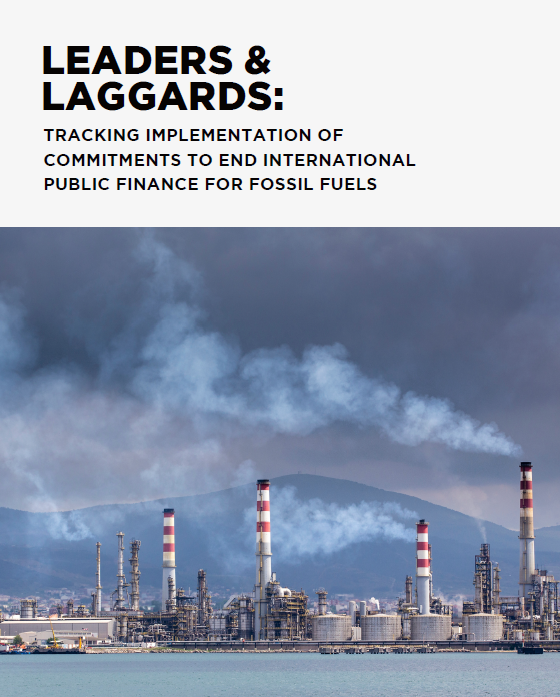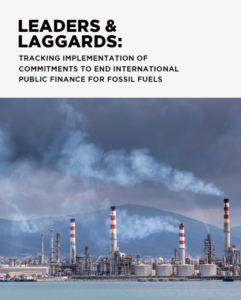Download the implementation tracker briefing (PDF)
Updated February 2024
- A newly-released policy from the German government’s development bank, KfW, will continue to allow support for fossil gas plants and pipelines.
- Italy, the host of this year’s G7, has not improved its “worst-in-class” policy that falls far short of the CETP commitment.
- The analysis also includes Norway and Australia for the first time, who joined the CETP initiative at the COP28 UN climate summit in Dubai last year. Norway and Australia must publish a policy this year to keep the ‘stop funding fossils’ promise they made in Dubai.
- Eight out of the sixteen CETP signatories with significant amounts of international energy finance have policies that end fossil fuel support, and only five have violated their pledge by financing new fossil fuel projects since the deadline passed.
At COP26, the 2021 global climate conference in Glasgow, 34 countries and 5 institutions pledged to end direct international public finance for unabated fossil fuels by the end of 2022 and prioritize their public finance fully for the clean energy transition. This was the Clean Energy Transition Partnership or CETP (sometimes called the Glasgow Statement) the first international political commitment that focused on ending public finance for oil and gas in addition to coal.
The signatories include some of the largest historic providers of international public finance, including Canada, Germany, Italy, United States, United Kingdom, and France. Early analysis suggests that the CETP was already shifting an estimated $5.7 billion per year out of fossil fuels and into clean energy before the end-of-2022 deadline, with the potential of a further $13.7 billion per year if all signatories fulfill their commitments.
With Japan joining peers in making a near-identical commitment at the G7 in May 2022, the potential total financial shift increases even further. Realizing this shift is critical to tip the international public finance balance in favor of clean energy. Between 2019 and 2021, the G20 countries and Multilateral Development Banks (MDBs) provided nearly two times as much public finance for fossil fuels (USD 55 billion) as for clean energy (USD 29 billion) every year.
However, some countries have been backsliding on their COP26 commitment by investing in gas and Liquefied Natural Gas (LNG) to replace Russian supply during the Ukraine war. Yet, civil society representatives and the International Energy Agency have warned that the answer to the energy and climate crisis are one and the same: an accelerated transition away from fossil fuels and to clean energy, not investments in new oil and gas fields or LNG infrastructure. Governments have an opportunity to prioritize finance for the clean energy and energy efficiency solutions that are most effective in supporting energy access, security and affordability.
This briefing, regularly updated here, tracks implementation efforts and assesses whether countries are on track to keep their stop funding fossils promise.


